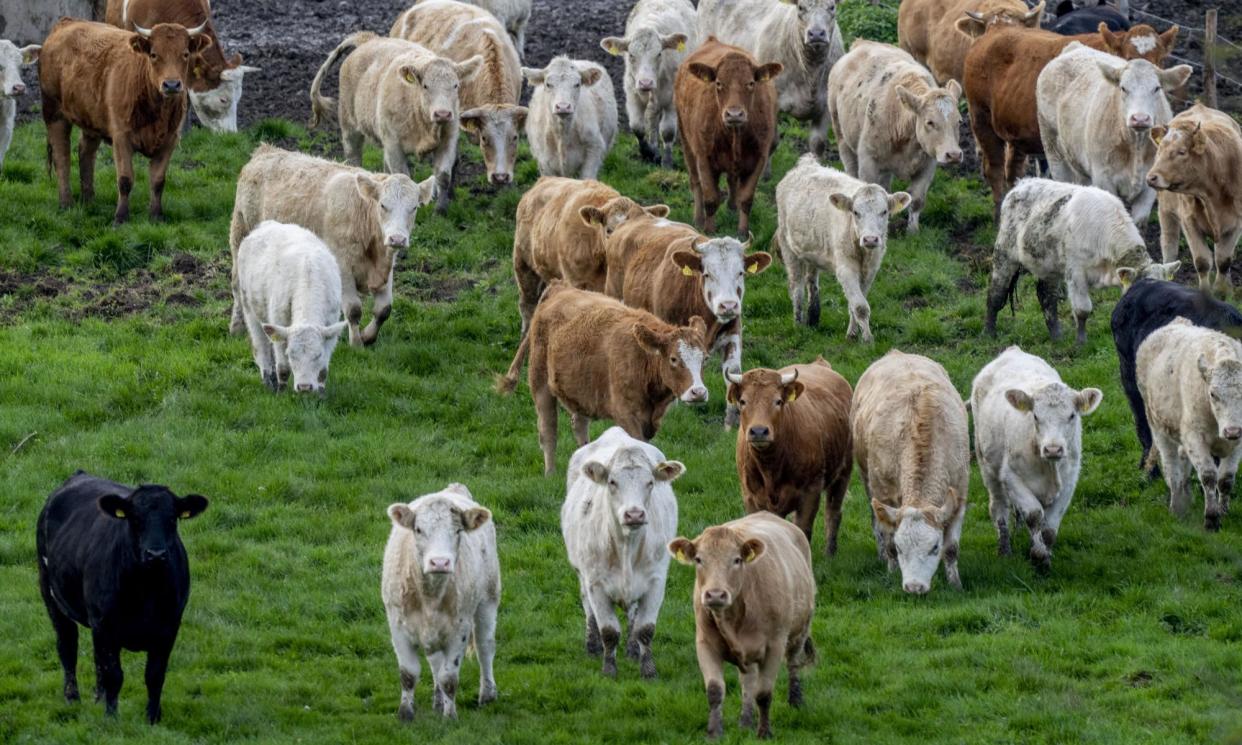Global spending on subsidies that harm environment rises to $2.6tn, report says

The world is spending at least $2.6tn (£2tn) a year on subsidies that drive global heating and destroy nature, according to new analysis.
Governments continue to provide billions of dollars in tax breaks, subsidies and other spending that directly work against the goals of the 2015 Paris climate agreement and the 2022 Kunming-Montreal agreement to halt biodiversity loss, the research from the organisation Earth Track found, with countries providing direct support for deforestation, water pollution and fossil fuel consumption.
Examples include state support for large fishing vessels that drive overfishing, and government policies that subsidise petrol, synthetic fertilisers and monoculture crop production.
The report found that the annual total of environmentally harmful subsidies has increased by more than $800bn – or $500bn when adjusted for inflation – since the authors last published an analysis in 2022. The increase was driven by the consequences of the war in Ukraine, which caused fossil fuel subsidies to increase sharply.
Christiana Figueres, who was UN climate change head during the Paris agreement negotiations, said environmentally harmful subsidies were an existential issue and governments urgently needed to provide policy coherence on the environment.
“Two years on from the signing of the landmark biodiversity plan, we continue to finance our own extinction, putting people and our resilience at huge risk. Estimates are higher than previously thought – with at least $2.6tn now funding the destruction of nature, endangering the chances of meeting our nature and climate goals,” she said.
The report’s authors, who are leading experts on subsidies, said a significant proportion of the $2.6tn – which is equivalent to about 2.5% of global GDP – could be repurposed for policies that benefit people and nature. Nearly all the world’s governments pledged to do this as part of the UN Kunming-Montreal biodiversity agreement at Cop15 in December 2022.
Doug Koplow and Ronald Steenblik said their calculation was probably an underestimate due to poor quality data. Many governments are unaware of the true extent of environmentally harmful subsidies, despite promising to identify them by 2025, they said, although Brazil, the Netherlands and the EU are among those working to better understand their scale.
Koplow said: “Environmentally harmful subsidies are subsidies that governments give in many different forms – not just cash – that have the result of accelerating natural resource extraction, damage to natural habitats and pollution.”
Less than two years ago, at Cop15, governments pledged to repurpose at least $500m of the subsidies a year by 2030. Governments will meet again at Cop16 in Colombia next month, for their first meeting since the promise was made. The report’s authors urged them to make good on their commitment.
“The issue with a lot of these subsidies is that they’re very poorly targeted,” said Steenblik. “We’ve seen places like Nigeria where they’ve tried to reform subsidies, [and] there’s a huge backlash because the general public sees it as the only benefit they’re getting out of the government. They [were] spending more on fuel subsidies than education or health,” he said.
Related: We must restore nature to avoid global catastrophe, warns biodiversity summit president
Heat pumps and insulation are examples of subsidies that would help people and the environment.
Eva Zabey, the CEO of Business for Nature, said action on environmentally harmful subsidies was critical to the success of this decade’s UN biodiversity agreement.
“It’s about systems transformation underpinned by valuing nature in decision-making. We’ve got this vicious cycle: the more people are dependent on these subsidies, the more the subsidies will remain and we won’t be transitioning away,” she said.
Find more age of extinction coverage here, and follow the biodiversity reporters Phoebe Weston and Patrick Greenfield on X for all the latest news and features.


